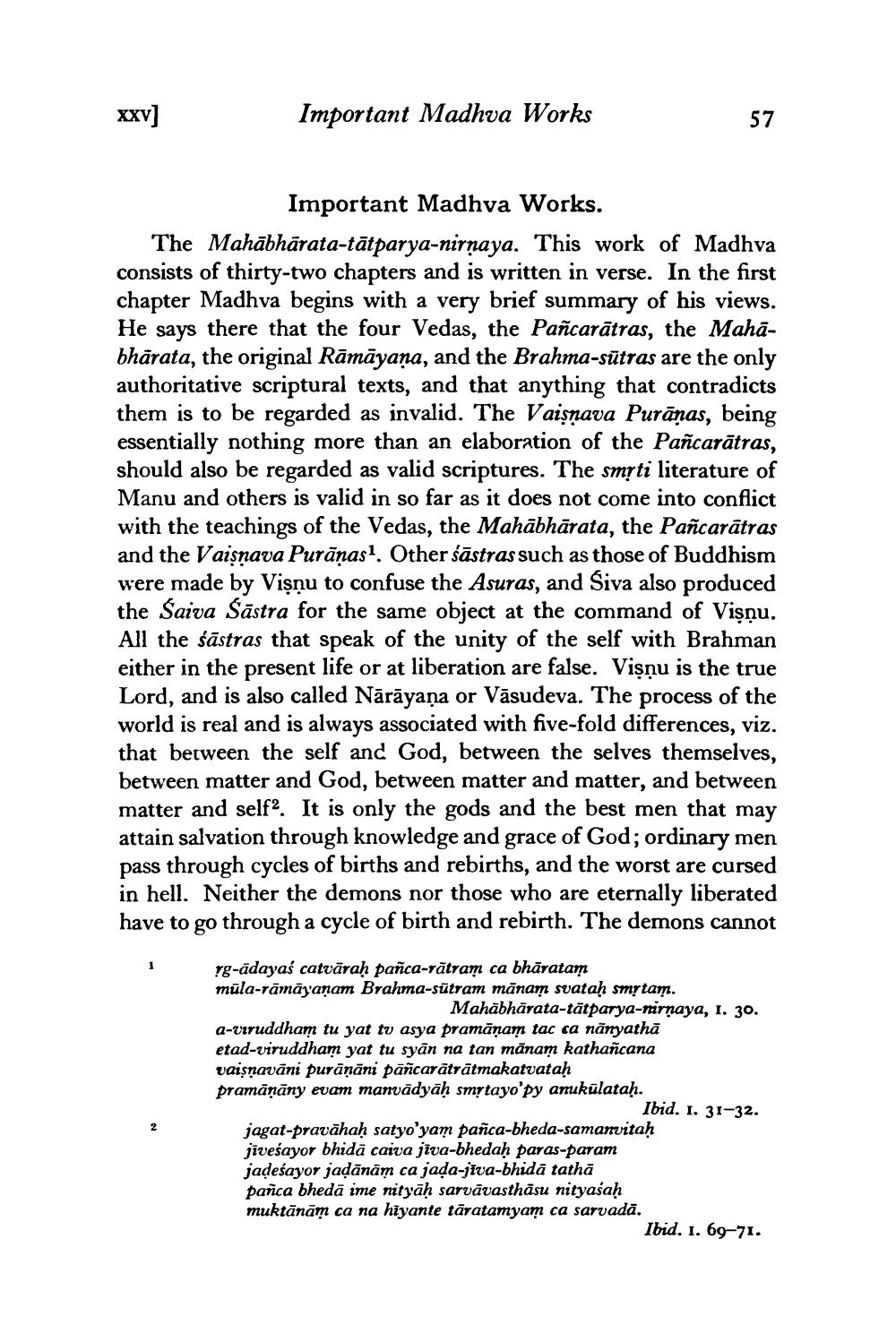________________
XXV]
1
Important Madhva Works
Important Madhva Works.
The Mahabharata-tātparya-nirṇaya. This work of Madhva consists of thirty-two chapters and is written in verse. In the first chapter Madhva begins with a very brief summary of his views. He says there that the four Vedas, the Pañcarātras, the Mahābhārata, the original Rāmāyaṇa, and the Brahma-sutras are the only authoritative scriptural texts, and that anything that contradicts them is to be regarded as invalid. The Vaisnava Purāņas, being essentially nothing more than an elaboration of the Pañcarātras, should also be regarded as valid scriptures. The smrti literature of Manu and others is valid in so far as it does not come into conflict with the teachings of the Vedas, the Mahābhārata, the Pañcaratras and the Vaisnava Purāņas1. Other sastras such as those of Buddhism were made by Visnu to confuse the Asuras, and Siva also produced the Saiva Sastra for the same object at the command of Viṣṇu. All the sastras that speak of the unity of the self with Brahman either in the present life or at liberation are false. Visnu is the true Lord, and is also called Nārāyaṇa or Vasudeva. The process of the world is real and is always associated with five-fold differences, viz. that between the self and God, between the selves themselves, between matter and God, between matter and matter, and between matter and self2. It is only the gods and the best men that may attain salvation through knowledge and grace of God; ordinary men pass through cycles of births and rebirths, and the worst are cursed in hell. Neither the demons nor those who are eternally liberated have to go through a cycle of birth and rebirth. The demons cannot
2
57
rg-ādayaś catvāraḥ pañca-rātram ca bhāratam
mūla-rāmāyaṇam Brahma-sūtram mānam svataḥ smṛtam. Mahabharata-tātparya-nirnaya, I. 30.
a-viruddham tu yat tv asya pramāņam tac ca nănyathā etad-viruddham yat tu syan na tan manam kathañcana vaiṣṇavāni purāṇāni pāñcarātrātmakatvataḥ pramāṇāny evam manvādyāḥ smṛtayo'py anukulataḥ.
Ibid. 1. 31-32.
jagat-pravahaḥ satyo'yam pañca-bheda-samanvitaḥ jiveśayor bhida caiva jiva-bhedaḥ paras-param jadeśayor jaḍānam ca jaḍa-jiva-bhidā tatha pañca bheda ime nityāḥ sarvāvasthāsu nityaśaḥ muktānāṁ ca na hiyante tāratamyam ca sarvadā.
Ibid. 1. 69-71.




